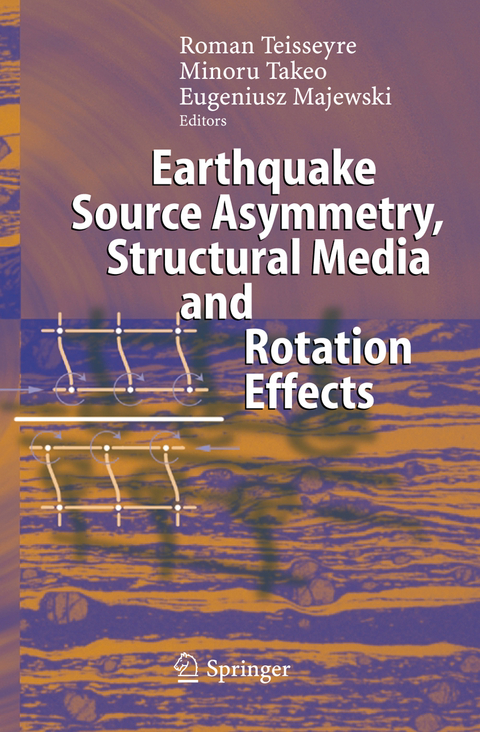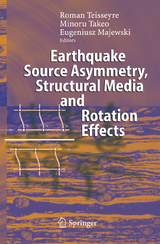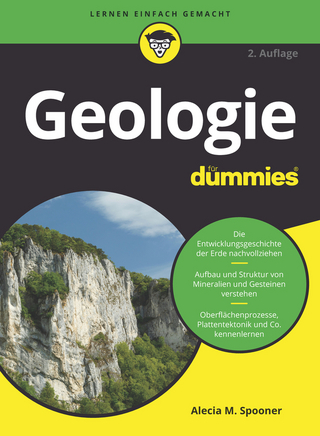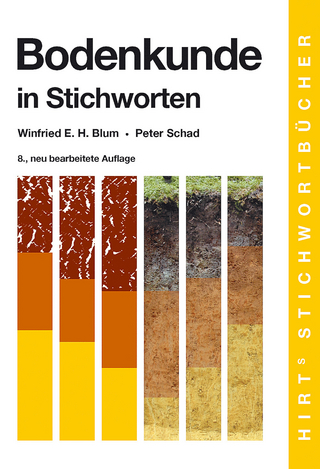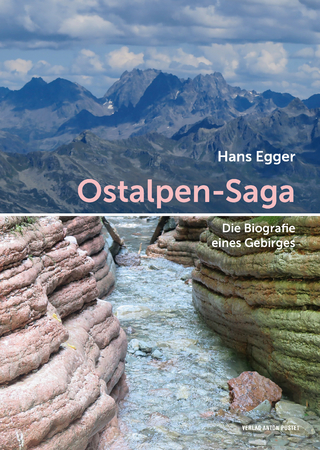Earthquake Source Asymmetry, Structural Media and Rotation Effects
Springer Berlin (Verlag)
978-3-540-31336-6 (ISBN)
Macroseismic Rotation Effects and Micromotions.- Development of Earthquake Rotational Effect Study.- Sources of Rotation and Twist Motions.- Some Examples of Rotation Effects: the Tulbagh Earthquake, South Africa.- Theory of Continua and Fields of Defects.- Deviations from Symmetry and Elasticity: Asymmetric Continuum Mechanics.- Degenerated Asymmetric Continuum Theory.- Continuum with Rotation Nuclei and Defects: Dislocation and Disclination Densities.- Towards a Discrete Theory of Defects.- Fault Dynamics and Related Radiation.- A Review on Friction.- Soliton Physics.- Rotation Motions, Seismic Source Models, and Asymmetry of Fracture.- Rotational Motions Excited by Earthquakes.- Ground Rotational Motions Recorded in Near-Source Region of Earthquakes.- Fracture-Band Geometry and Rotation Energy Release.- Rotation Motions: Recording and Analysis.- Glacier Motion: Seismic Events and Rotation/Tilt Phenomena.- Rotational Energy and Angular Momentum of Earthquakes.- Bend-Rotation Wave as a Mechanism of Macroseismic Effects.- Solitary Waves in Crustal Faults and their Application to Earthquakes.- Seismic Rotation Waves: Spin and Twist Solitons.- Earth Rotation, Elasticity and Geodynamics: Earthquake Wave Rotary Model.- Effects Related to Medium Structures and Complexity of Wave Propagation.- Seismic Rotation Waves in the Continuum with Nonlinear Microstructure.- Tectonic Solitons Propagating Along the Fault.- Complexity of Rotation Soliton Propagation.- Micromorphic Continuum with Defects and Taylor-Bishop-Hill Theory for Polycrystals: Anisotropic Propagation of Seismic Waves and the Golebiewska Gauge.- Seismic Ray Theory for Structural Medium based on Kawaguchi and Finsler Geometry.- From Non-Local to Asymmetric Deformation Field.- Earthquake Hazard in the Valley of Mexico: Entropy, Structure, Complexity.- Seismic Rotational Motions: Recording Techniques and Data Analysis.- Note on the Historical Rotation Seismographs.- Ring Laser Gyroscopes as Rotation Sensors for Seismic Wave Studies.- Rotational Motions in Seismology: Theory, Observation, Simulation.- Absolute Rotation Measurement Based on the Sagnac Effect.- Design of Rotation Seismometer and Non-Linear Behaviour of Rotation Components of Earthquakes.- Rotation and Twist Motion Recording - Couple Pendulum and Rigid Seismometers System.- Equation of Pendulum Motion Including Rotations and its Implications to the Strong-Ground Motion.- Strong Motion Rotation Sensor.- High-Resolution Wide-Range Tiltmeter: Observations of Earth Free Oscillations Excited by the 26 December 2004 Sumatra -Andaman Earthquake.- Fiber Optic Sensors for Seismic Monitoring.- Rotations and Engineering Seismology.- Deriving Seismic Surface Rotations for Engineering Purposes.- Effects of Torsional and Rocking Excitations on the Response of Structures.
| Erscheint lt. Verlag | 24.4.2006 |
|---|---|
| Zusatzinfo | XXIV, 582 p. |
| Verlagsort | Berlin |
| Sprache | englisch |
| Maße | 155 x 235 mm |
| Gewicht | 1136 g |
| Themenwelt | Naturwissenschaften ► Geowissenschaften ► Geologie |
| Naturwissenschaften ► Geowissenschaften ► Geophysik | |
| Technik ► Bauwesen | |
| Schlagworte | Deformation • Earthquake • earthquakes • Erdbeben • Fracture • Rotation • Rotational Ground Motions • Seismic • Seismic Rotational Waves • Seismik • Seismology • Seismometer • Simulation • Structured Media |
| ISBN-10 | 3-540-31336-2 / 3540313362 |
| ISBN-13 | 978-3-540-31336-6 / 9783540313366 |
| Zustand | Neuware |
| Haben Sie eine Frage zum Produkt? |
aus dem Bereich
